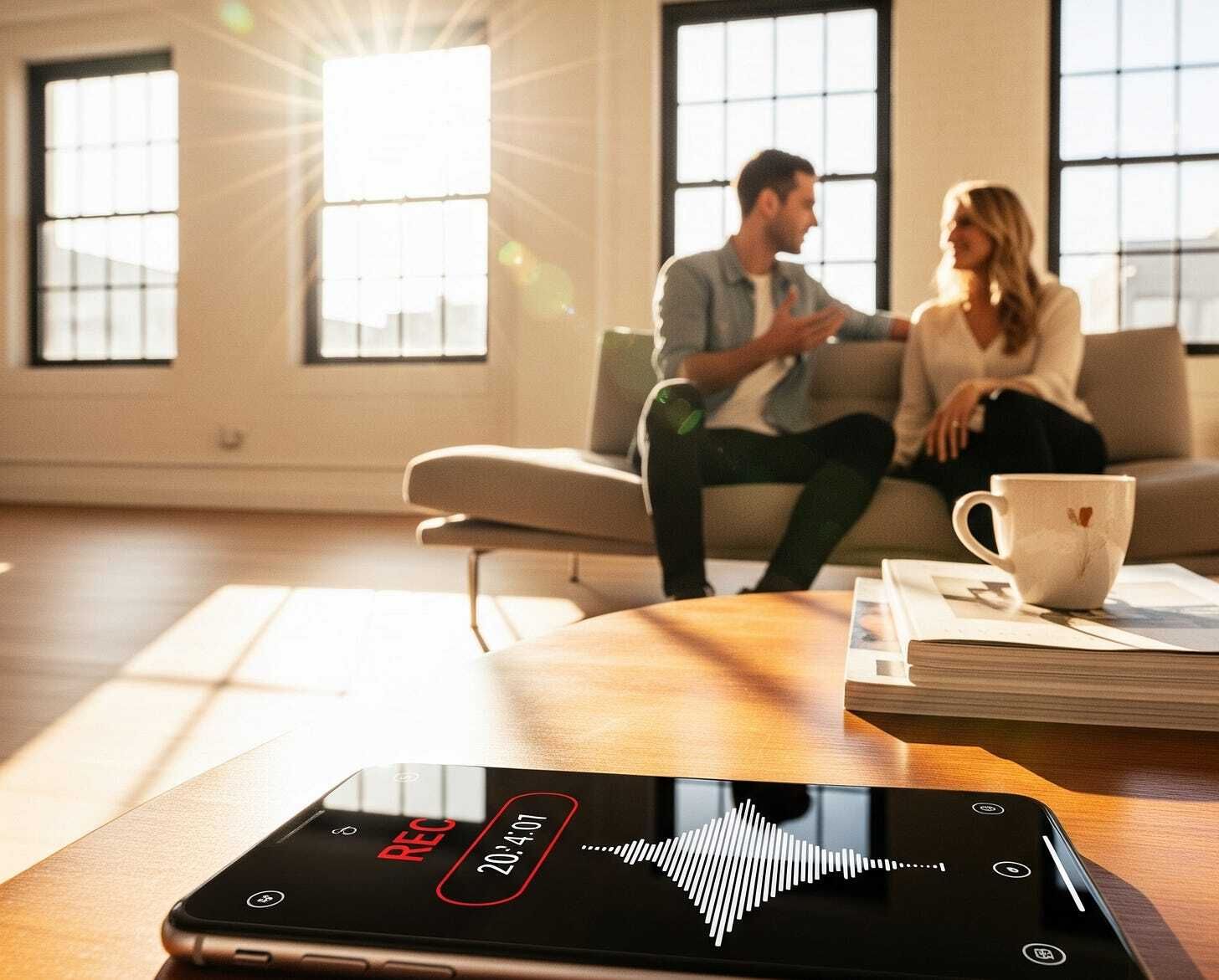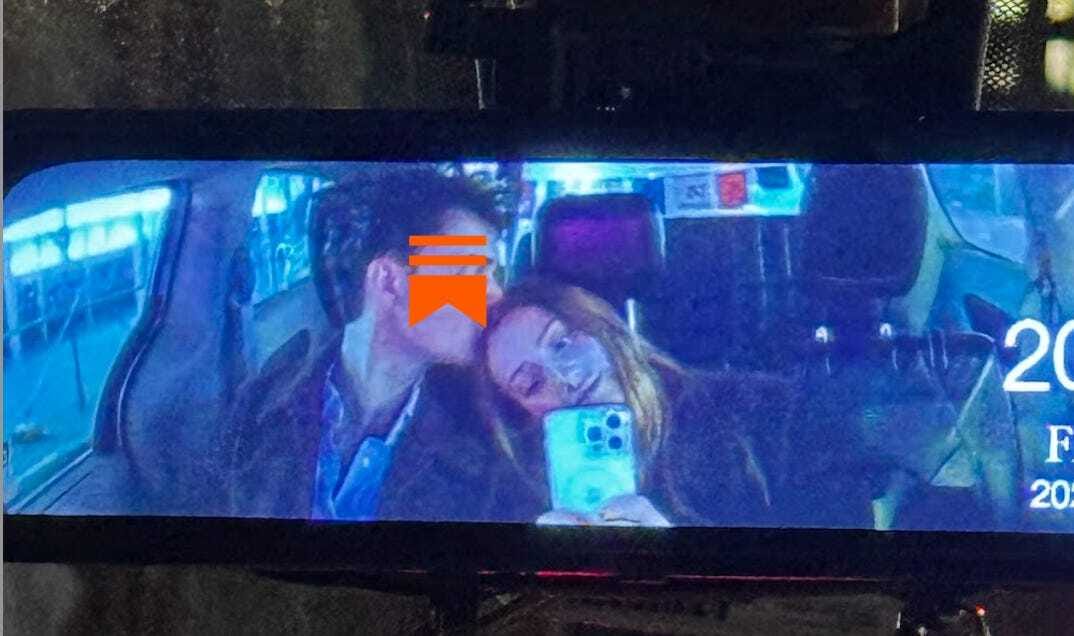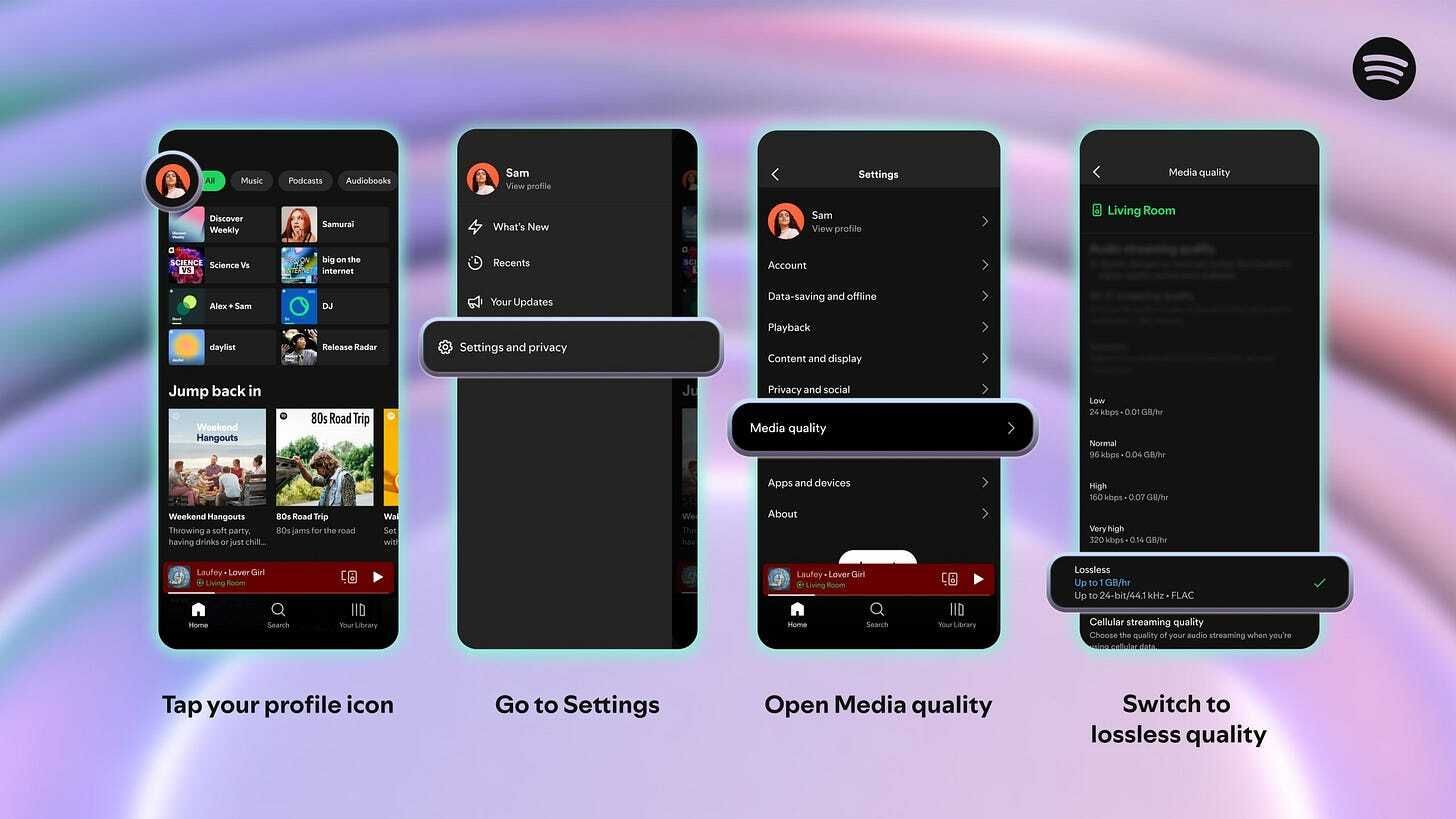- Braun & Brains
- Posts
- Are your friends recording you?
Are your friends recording you?
Plus: Jared Kushner’s AI startup, Robinhood’s influencer era, audio tech shifts, and why AI makes job hunting even harder.
TLDR: @ElizabethEatsNYC wears Meta glasses and it sucks. My friend wore them to a wedding and it rocked. Secretly recording conversations with your partner feels sneaky. An AI chatbot giving you a running commentary of your life is lame and weird. Context is key when it comes to recording in social settings.
Little by little, new technology is slipping into our lives with the sole purpose of capturing conversations in the background. It used to be corporations dissecting every word, and we were concerned. Now, it could be anyone, and it doesn’t even feel that crazy anymore.
I am of the mind that my phone is probably recording me all the time and that my Alexa knows everything about me for the same reason. Corporations want to sell me something they know I’d buy by understanding the deepest, darkest parts of me. But why would other people want to be recording our personal conversations constantly?
I recently had a friend secretly record a conversation with their partner, then replay it to analyze where they could have been a better conversationalist and, of course, where their partner had fallen short. It turned into an obsession, with them dissecting the exchange like an AP English assignment where you break down a president’s speech.

Created using Gemini
This wasn’t an abuse situation where documentation is essential in court, I understand that. In this case, recording just can’t be healthy. The person who recorded even mentioned bringing the audio to their next couples therapy session. That felt less like seeking help and more like sneakily gathering ammunition.
The entire thing has got me thinking about what it means to be recorded in secret and how much easier it is now than ever before. When it’s a company, the intrusion almost feels superficial. The boundaries are different because I already assume they’ll be crossed.
With an employer, using tools like Granola AI, which does not disclose that it is summarizing a call, generating action items, and producing notes, feels like something I expect. Maybe I am just cynical. On a personal level, outside of work or consumer convenience, secret recording feels nefarious in almost every case. It feels like an incredible breach of privacy.
At work, I tell people on all my calls that I’m recording. It feels right, and it makes meetings sharper, more focused, and more professional. People tend to clean up their act once they know they’re on record. If we truly knew how often we were being recorded in places and situations we never expect, I imagine our personalities would be far more filtered than they already are.
A wedding, on the otherhand, is one of those places where you expect to be filmed and documented, with content living forever on someone’s phone or in the couple’s scrapbook or Google Drive. Guests often play it up for the camera, making it look like their friend’s wedding is also the best day of their own lives.
In this context, a recording device like Meta glasses actually worked well. A friend has been wearing them to weddings all summer, and his social stories have been great. When I saw him, it was clear he had them on, especially during longer conversations throughout the day, and they looked familiar enough that no one was surprised. Everyone he spoke with, aside from a few parents, was young and unfazed. The glasses were mostly used on the dance floor and at the bar, not during private conversations. They were a hit.

When the Meta glasses wearer at the wedding put the videos up on his story, viewers could tell he recorded with them. When a video is posted to TikTok using them, the user is not shown a similar disclosure.
Context is crucial though; for example, take the TikTok creator @elizabetheatsnyc, the New York food creator who shoots from a POV perspective, using her glasses to show interactions that often lack fear and social cues. The result gives viewers a direct look at the food, the people, and the surroundings in a way that feels different from other creators. Unlike many food influencers who show their own faces while eating, she shifts the focus and avoids showing her own face, although she has been doxxed after making insensitive jokes at an Israeli restaurant. She wears Meta glasses in ways where people probably do not expect to be recorded, and she is not having long conversations. I would think that most people in her videos may not even realize they are being filmed, honestly.
@elizabetheatsnyc #nyc #harlem #harlemnyc #soulfood #southernfood #culture #influencers #nyceats #foodie
At this point, we should all understand that we might be recorded wherever we are outside our homes. That does not mean it is acceptable to keep adding to a culture of constant surveillance. It makes people uneasy.
If @elizabetheatsnyc did the same thing with her phone, I suspect the reaction would be very different. She probably would not have the following she does now. Recording with a phone feels confrontational when it is shoved in your face unprompted. What feels even worse is being filmed without your consent in a setting where you do not expect it, and especially when it comes from another person rather than a company. An Uber dashboard camera is one thing. Glasses are another. Recording someone without consent or preparation feels invasive, almost aggressive.

That’s why tools like Friend, the wearable AI chatbot necklace, feel so uncomfortable. As Kylie Robison wrote in WIRED after testing it:
“It is an incredibly antisocial device to wear. People were never excited to see it around my neck. I certainly wouldn’t approach my neighbor with a mic and try to assuage their anxiety by telling them the audio is just going to a chatbot... I found out quickly that even at the most tech-minded gatherings, the thing was a complete taboo. After the device started to ship to users, one person on X said there should be a slur for people who wear AI devices that record those around them.”
In the future, it might be normal to have friends record every conversation, and I will sound like an old lady stuck in the Stone Age for saying I don’t like their devices. Experiencing a moment without proof may become a relic of its time. For now, treating every interaction as content to be captured still feels strange to me.
This newsletter has been edited by very smart friend, Annalise!
Need someone to proofread you work? Check her out.
Tech News
AI
Reddit, Yahoo, Quora, wikiHow, and others are backing a new standard called Really Simple Licensing (RSL). It lets publishers set rules and fees for AI companies that scrape their content for training. The goal is to move from one-off deals to a system that makes the entire web licensable. (The Verge)
OpenAI signed a $300B cloud deal with Oracle starting in 2027, following its $500B Stargate Project with Oracle and SoftBank. Oracle stock rose 36%, briefly making Larry Ellison the world’s richest person, ahead of Grimes’ ex, Elon Musk. (Reuters)
AI might not be taking your job, but it could be the reason you do not get one. Young people use AI to write applications while HR uses AI to screen them, and most never hear back. Even with low unemployment and higher wages, companies are barely hiring. (The Atlantic)

What could possibly go wrong!
Audio
YouTube is rolling out multi-language audio to millions of creators. Fans around the world will soon be able to watch videos in their own language, boosting global reach. In tests, creators saw over 25% of watch time come from non-primary languages, with channels like Jamie Oliver tripling views and Mark Rober uploading dubs in 30+ languages. (YouTube)
Spotify Premium is finally rolling out lossless audio in over 50 markets. Subscribers can now stream in up to 24-bit/44.1 kHz FLAC, giving a richer and more detailed sound. The feature is available on mobile, desktop, and many Spotify Connect devices, with more support coming next month. (Spotify)

Stability AI released Stable Audio 2.5, its first enterprise-grade audio model. It can generate three-minute tracks in under two seconds, create structured compositions, and supports audio inpainting for more control. The tool is aimed at brands that want custom, high-quality sound across ads, products, and experiences, and is available via API, partner platforms, or enterprise licensing. (Stability AI)
Musicians across Latin America say AI-made tracks are flooding streaming platforms, cutting into their royalties and making it harder to be heard. Independent artists report shorter song lifespans, shrinking income, and rising pressure to churn out content, while platforms like Deezer and Spotify scramble to detect AI uploads. Many artists are pushing for regulation, arguing that their work is being used to train AI without permission or payment. (Rest of World)
ElevenLabs is letting employees sell up to $100M in stock at a $6.6B valuation, double its last mark. The AI voice startup, backed by Sequoia and Iconiq, has scaled from 77 to 331 staff in a year and hit $200M in recurring revenue, showing how hot secondary sales have become as talent wars intensify and IPOs stay on hold. (Bloomberg)
Creator Economy
The Treasury Department confirmed that podcasters, influencers, and streamers qualify for President Trump’s “no tax on tips” policy, letting creators deduct up to $25K in tipped income before phaseouts kick in at $150K for singles and $300K for couples. This shifts the economics of the creator economy, incentivizing platforms like TikTok, YouTube, and Twitch to push tipping features while giving creators a new tax-efficient way to earn. (Hollywood Reporter)
Robinhood is launching Robinhood Social, a built-in network where users can post trades, follow other investors, and track moves from public figures like Mark Zuckerberg and Nancy Pelosi. By verifying trades and showing author performance stats, Robinhood aims to blend brokerage with social media, deepening engagement and potentially boosting trading volume. (The Wall Street Journal)
Snap is splitting its 5K-person staff into 10–15 person “startup squads” after ad revenue growth stalled at 4% and North American daily users slipped 2% to 98M. With shares down 90% from a $116B peak to $12B, CEO Evan Spiegel is betting on smaller teams, $700M+ in Snapchat+ subscriptions, and long-term AR glasses to revive growth. (The Tech Buzz)
Government
The US Army awarded $159M to Anduril and Meta and $195M to Rivet to develop competing combat goggles. (Bloomberg)

The GAIN AI Act, part of the US defense bill, would require Nvidia and other chipmakers to prioritize American buyers before exporting high-performance AI processors above a 4,800 power threshold. Lawmakers say it protects US security and keeps scarce chips available for domestic firms, but Nvidia argues the rule is unnecessary since 50% of its revenue already comes from US customers and warns it would hurt global competitiveness. (Reuters)
Nepal’s government lifted its ban on 26 social media platforms after mass protests left at least 19 dead and more than 100 injured. The ban, aimed at limiting fake news and fraud, instead fueled a Gen Z–led anti-corruption movement targeting politicians’ families and forcing the resignation of the Prime Minister. (BBC)
“When you tear out a man's tongue, you are not proving him a liar, you're only telling the world that you fear what he might say.”
Jared Kushner has co-founded Brain Co., an AI startup that helps large companies and governments apply AI, raising $30M Series A from Affinity Partners, Gil Capital, and backers like Brian Armstrong, Patrick Collison, Reid Hoffman, and Nikesh Arora. With 40-person staff, a partnership with OpenAI, and clients including Sotheby’s and Warburg Pincus, Brain Co. enters a crowded field of AI consultants but pitches itself as the bridge between foundation models and real-world business applications. (Forbes)

Reply